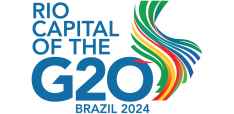International Relations vs Global Governance
Oleksandr Svitych examines the differences between the field of International Relations and that of Global Governance, exploring its definitions, actors, and its perspectives on world politics.
The great philosopher René Descartes noted: 'Let's agree on definitions, and we will spare the world half its illusions.' While International Relations (IR) is still widely used in political science, global governance is better suited to reflect the global transformations and complex inter-linkages of the contemporary world.
It's all in the definition
The Webster dictionary defines international relations as 'an area of study or knowledge concerned with relations between different countries'. The Collins dictionary follows the same logic and defines IR as “diplomatic and business relationships between and among countries”. Encyclopaedia Britannica outlines international relations as 'the study of the relations of states with each other and with international organizations and certain subnational entities (e.g., bureaucracies, political parties, and interest groups)'.
All these definitions represent a traditional understanding of international relations as relations among states, nations, or nation-states. Since nation-states are viewed as the main actors in the world of politics, the relations among them are called inter-national. Encyclopaedia Britannica seems to go a bit beyond the dimension of the state itself by adding bureaucracies, political parties, and interest groups. However, these are affiliated with the states too, so the state-centric character of the definition prevails. In this regard, the example of Wikipedia is quite a contrast:
'International relations (IR) is the study of relationships among countries, the roles of sovereign states, inter-governmental organizations (IGO), international non-governmental organizations (INGO), non-governmental organizations (NGO), and multinational corporations (MNC).'
Several questions arise here. Can we still talk about inter-national relations if nation-states are no longer the only players out there, as Wikipedia suggest? Or is the term still appropriate as nation-states are still key players, although not the only ones? What if nation-states are no longer the primary actors?
Actors on the stage
Although Wikipedia offers the most comprehensive definition of international relations at first sight, the main focus is still “the study of relationships among countries”, which justifies the word 'international'. Still, it has been widely accepted that globalization has weakened drastically the national dimension of nation-states.
The majority of scholars agree that nation-states are undergoing epochal transformations. Some speak about world government, others advocate for civilizations, while still others highlight the emergence of regional economies or even of the corporation-state, a candidate for replacing the 'outdated' nation-state that reached its peak of development in the period of 1850-1970's. All in all, while in the past international relations was confined to just states (countries, nation-states), the political landscape is rather different today. Some of the new yet powerful actors include:
- international organizations (NGOs and INGOs, such as Greenpeace, Human Rights Watch, CARE International, etc.)
- inter-governmental organizations (IGOs) and regional alliances, such as UN, EU, NATO
- multinational or transnational corporations (MNC or TNC)
- Scientific bodies, such as the Intergovernmental Panel on Climate Change (IPCC)
- important heads of state
- terrorist organizations
All of these players have had a great impact on international relations for decades now. As a result, international relations as a broad term of political science needs to be reassessed and replaced by a more suitable one. The reality has changed; the words that describe reality must therefore change too. Shall it betransnational relations, global relations, inter corporate relations, supranational relations? While the mainstream definition of international relations has been challenged from a range of perspectives, there is no dominant alternative yet. The notion of global governance may be the answer.
Global governance vs international relations
A common view of global governance is that of a set of laws, rules, or regulations designed to tackle global problems that cannot be solved by nation-states alone. For example, the problems of global warming, human trafficking, or terrorism. More importantly, however, global governance is an analytical concept that provides a specific perspective on world politics different from the conventional notion of international relations:
- First, while the concept of international relations by definition covers politics among nations, with non-state actors being secondary, the term global governance avoids such a hierarchy. In contrast, it gives equal importance to NGOs, TNCs and other actors. Thus, the reports of the Intergovernmental Panel on Climate Change (IPCC), decisions of the International Criminal Court (ICC), or regulations by the World Trade Organization (WTO) all have a significant impact on international and national policies. In this way global governance takes a multi-actor perspective on world politics instead of focusing primarily on nation-states.
- Second, while the term international relations views international reaction as a separate level, the term global governance views world politics as a multi-level system where local, regional, national, and global processes cannot be separated from each other. The scope of interest here is therefore on the different and complex linkages between different levels of social interaction. For example, this includes understanding of how WTO rules influence communities in different regions, and vice versa – how these communities affect WTO rules. Or, as another example, researching on how solutions to global problems take into account local differences and settings. In this way global governance looks into all levels in order to understand how the whole system works.
- Finally, while international relations traditionally seek to explain the behaviour of nation-states from a power relations point of view, global governance focuses on norms, rules, and standards that structure social activity. This again stresses the non-actor-centred approach of global governance.
To conclude, the main idea behind adopting the term 'global governance' more widely is to reflect the need for more cooperation among governments, governmental and non-state actors. Global governance can be a useful concept to understand interactions and transformations we observe in world politics, and to guide our analysis of political processes beyond the state.
Originally from Ukraine, Oleksandr Svitych is an independent researcher. He holds an MA from the Central European University in Budapest (Department of International Relations and EU Studies, 2008). This piece originally appeared on OpenDemocracy.



